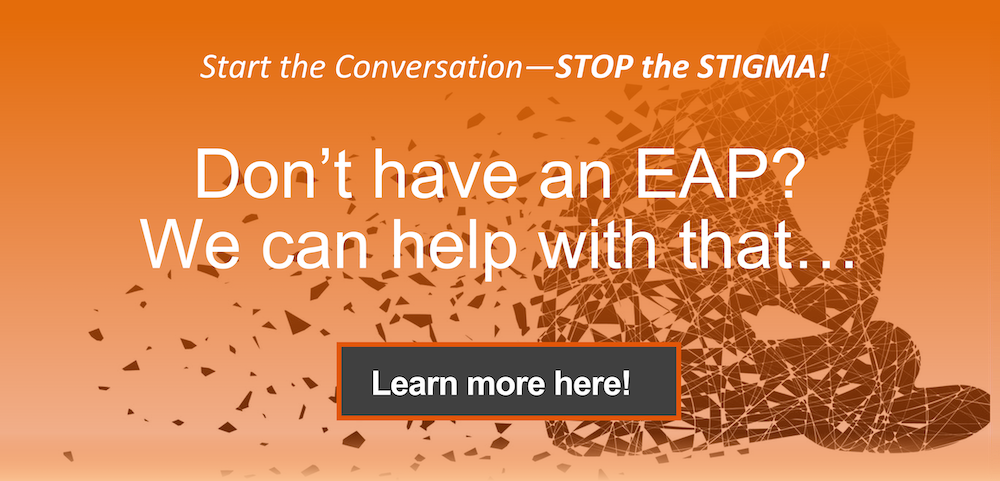We are emotional beings with feelings. We hang labels on emotions such as, happiness, irritability, serenity, etc. Each emotion gives us valuable information, but if we aren't careful intense and powerful emotions such as anger can get in our way.
Recognizing the early warning signs of anger and learning to express your feelings without blaming is a valuable skill that most people have trouble learning. Making it even more difficult is that anger is often a mask covering up another feeling.
5 Tips to Squash Anger
1. Instead of calling a situation "awful or terrible," tell yourself, "This is unpleasant."
2. Avoid upsetting extremes like, "I can't take it." Instead, try the more realistic, "I really don't like it."
3. Stay away from thinking someone "should" or "ought to" act differently. "I wish she would act differently" is a better choice.
4. Try not to use exaggerations like "always" or "never" to describe how often something upsetting happens. And judge the behavior -- not the person. ("That driver is a jerk.”)
5. Promote the use of your organization's EAP.
If you are constantly angry, you may be overlooking a significant problem in your life. It isn't uncommon for people to repress stressors they don't want to deal with or that threaten their safety.
Coping with your anger by utilizing strategies like exercise, meditation, massage, deep breathing and mindfulness will help reduce the intensity of your anger and give your mind a chance to evaluate the situation.
"For every minute you remain angry, you give up sixty seconds of peace of mind“ – Ralph Waldo Emerson
You, Yourself & Anger
Do you get angry when someone disrespects you, breaks a promise or lies to you? Most often the answer is yes. How do you resolve your anger? Do you discuss the situation or let it go?
An article by Learning Mind lists seven anger types of people fall into based on their behaviors. Some people have inborn personality traits that make them more susceptible to anger and stress. Other people have a low tolerance for frustration and get angry easier than others.
Thought patterns and attitudes also help contribute to the reasons you get angry.
People fall into seven anger types, and it isn't uncommon to move between them depending on the source of the anger.
Seven Anger Types
• Moral of righteous anger
• Behavioral anger
• Habitual anger
• Self-harm
• Vengeance
• Passive-aggression
• Incidental anger
Moderate anger is a normal healthy reaction to being wronged in some way and can be helpful when deciding whether or not to take action.
More dangerous is chronic anger. It's like poison, seeping into every part
of your life, ruining relationships, friendships, and your body, not always in that order.
Anger induces stress which triggers your blood pressure to rise and your heart to beat faster. You only have so many beats in that heart; the quicker it pumps, the faster you get to the final beat.
Healthy coping strategies can make the difference between a happy and unhappy life. You can't always prevent anger from occurring, but you can work through it in healthy ways. The first step is discovering what is causing the anger.
Here is a minimal list of reasons why people generally get angry.
They get angry because:
• Weak boundaries, (always saying yes to helping with everything)
• Feeling anxious
• Sleep deprived
• Depressed
• Communication/relationship problems
• Feeling threatened or violated
• Feeling scared
• Feeling powerless and hopeless
• Lack of support
• Suffered a past trauma
• Grieving
Feel free to add your own triggers in the comments. It's interesting to see the similarities and differences in anger triggers between people, and you may spot one you hadn't thought of before.
Expressing Your Anger—What's Your Style?
Anger expression, anger styles, anger psychology, anger categories, anger types - Whatever name you want to give people's behavior when they get angry, it all falls into specific sections.
• Healthy anger
• Passive anger
• Aggressive anger
Anger research differs from article to article based on the type of research conducted. There isn't a right or wrong way to divvy anger behaviors; it just depends on the authors and their study.
Healthy, passive & aggresive Behavioral Styles of Anger
Healthy - This is the one to learn for the sake of your physical and mental health (and for the health of your relationships).
Assertive anger – Assertive anger is a productive expression of anger and encourages the parties to make a positive change. When expressing assertive anger, one might say: "I feel angry when XYZ happens." After expressing your feelings, follow up by explaining what you'd prefer to happen.
Passive – People who passively express anger are not necessarily causing immediate problems for the person with whom they are angry. Instead, they engage in gossip, develop a disrespectful attitude or give the person the "silent treatment."
• Silent anger
• Passive-aggressive anger
• Self-abusive anger
Aggressive – People who express their anger aggressively are the most obvious because their behaviors is often physically or emotionally abusive.
• Chronic anger
• Verbal anger
• Destructive anger
• Judgmental anger
• Volatile anger
• Overwhelmed anger
• Retaliatory anger
• Vengeful anger
There is a significant difference between a person who is angry and a person who has anger issues. People with anger issues anger easily and escalate quickly. They are always in some state of agitation and always blame someone else for mistakes.
When dealing with people who have anger problems, stay calm and do not lash out a response no matter how tempting the situation. It only fuels their fire. Be approachable and open to a discussion at a later time and set emotional and physical boundaries for yourself.
One last piece of valuable advice: Never, meaning don't ever, tell an angry person to calm down or hold up your hand as if to say "stop." It's dismissive and condescending to a person who doesn't feel like they are acting excessively angry. People are angry for a reason, and they want to be heard.
Shutting them down before they express their feelings will make the situation worse. This is where promoting the use of your EAP is a good idea!
When you partner with Ulliance, our Life Advisor Consultants are always just a phone call away to teach ways to enhance your work/life balance and increase your happiness. The Ulliance Life Advisor Employee Assistance Program can help employees and employers come closer to a state of total well-being.
Investing in the right EAP or Wellness Program to support your employees will help them and help you. Visit https://ulliance.com/ or call 866-648-8326.
The Ulliance Employee Assistance Program can address the
following issues:
• Stress about work or job performance
• Crisis in the workplace
• Conflict resolution at work or in one’s personal life
• Marital or relationship problems
• Child or elder care concerns
• Financial worries
• Mental health problems
• Alcohol/substance abuse
• Grief
• Interpersonal conflicts
• AND MORE!
References
Bienvenu, M. (4014, August 28). Why am I so Angry? Retrieved from WebMD: https://www.webmd.com/mental-health/features/why-am-i-so-angry.
Phd., E. S. (2020, Sept 20). How to Manage Anger and Stress. How to manage anger. Retrieved from Verywell mind: https://www.verywellmind.com/the-effects-of-anger-and-stress-3145076
Since Vertwell. (n.d.). Retrieved from Merriam Webster: //www.merriam-webster.com/dictionary/anger.
Staff. (2019, June). Retrieved from Merriam Webster: https://www.merriam-webster.com/dictionary/anger
Staff. (unk). Dictionary dot com,. (n.d.). Retrieved from Dictionary.com: https://www.dictionary.com/browse/anger


.jpg?width=1000&name=Anger%20assessment%20CTA%201000%20400%20(3).jpg)
